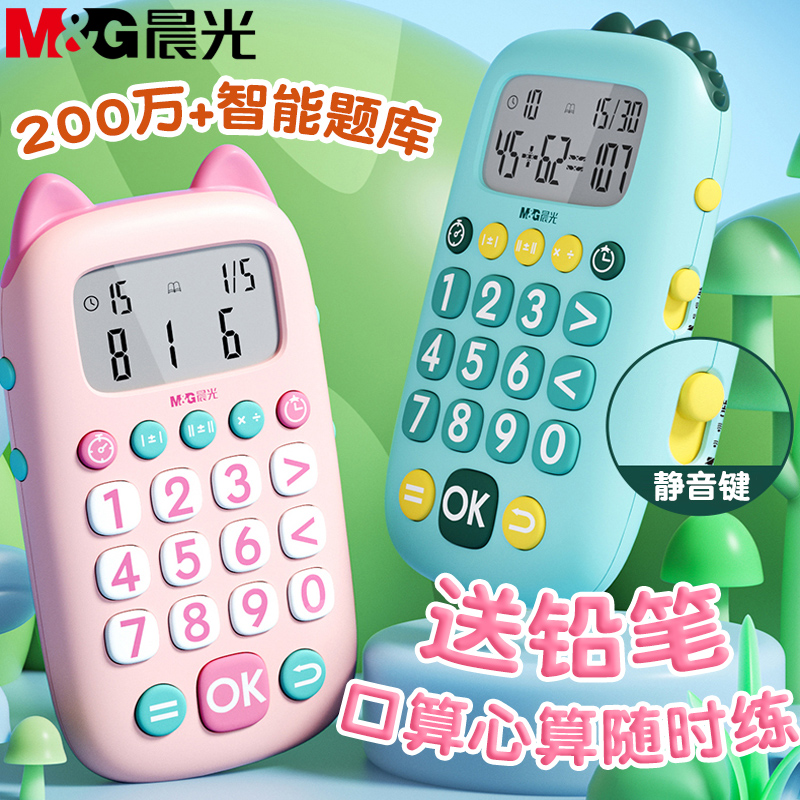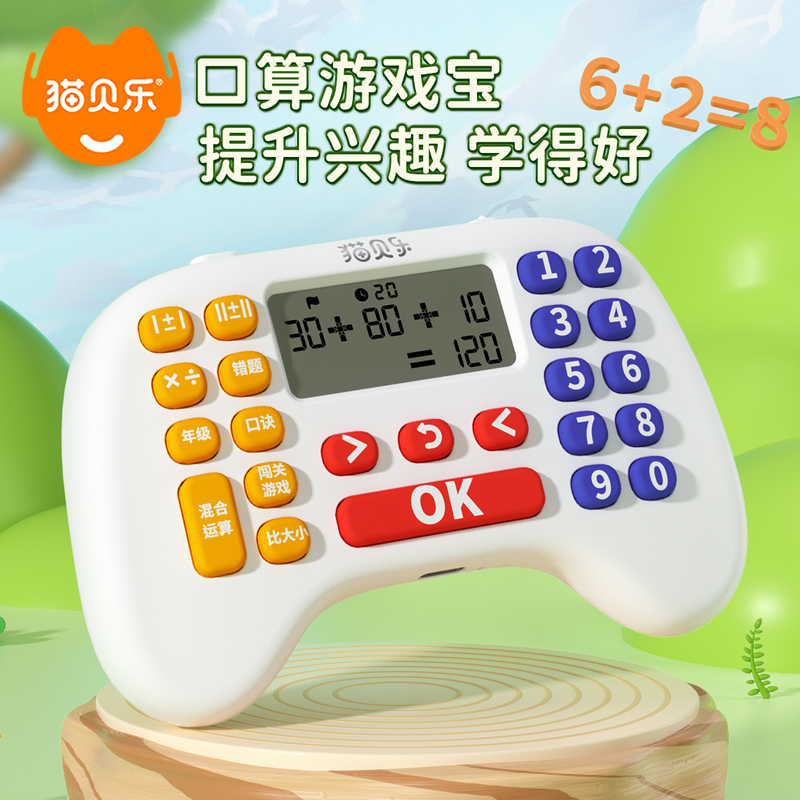口算机如何助力小学生提高数学成绩?
峎迥匞
2024-10-17 11:44:47
0次
**口算机如何助力小学生提高数学成绩?**
在小学数学教育中,口算能力是基础中的基础,它不仅关乎学生的数学基础,也影响着更复杂数学概念的理解和应用。口算机作为一种辅助教学工具,为小学生提供了便捷、高效的口算练习方式。以下是口算机如何助力小学生提高数学成绩的详细解析:
一、口算机的作用
1. 快速反馈:口算机能够即时给出计算结果,让学生迅速了解自己的答案是否正确,从而及时纠正错误。
2. 多样化练习:口算机提供丰富的练习题,涵盖各个数学知识点,帮助学生进行全面的口算训练。
3. 趣味性强:通过游戏化的方式,激发学生的学习兴趣,使他们在愉快的氛围中学习数学。
二、如何利用口算机提高数学成绩
1. 日常练习:小学生可以利用口算机进行日常的口算练习,加强自己的口算能力。 2. 课前预习:在上课前,学生可以使用口算机预习新课内容,提前熟悉知识点。 3. 复习巩固:课后,学生可以利用口算机进行知识的复习和巩固,加深对知识点的理解。 三、口算机的实际应用案例 以某小学为例,该校引入了口算机辅助数学教学。教师根据课程进度,布置相应的口算练习任务。学生通过口算机完成练习,系统即时给出反馈。教师根据学生的完成情况,调整教学策略,确保学生能够掌握知识点。同时,学校还组织了口算比赛,鼓励学生积极参与,提高口算能力。 四、翻译成英文 How Calculator Assists Primary School Students in Improving Math Scores? In the field of mathematics education for primary school students, the ability of mental arithmetic is the foundation of all learning. It not only relates to the mathematical basics but also affects the understanding and application of more complex mathematical concepts. As an auxiliary teaching tool, the calculator for mental arithmetic provides a convenient and efficient way for primary school students to practice their mental arithmetic skills. The following is a detailed analysis of how the calculator for mental arithmetic can help primary school students improve their math scores: 1. The role of the calculator: It provides quick feedback on calculations, allowing students to quickly understand whether their answers are correct or not, thus enabling them to correct their mistakes promptly. It offers diverse practice questions covering various mathematical knowledge points, enabling students to conduct comprehensive training in mental arithmetic. The interactive and gamified nature of the calculator enhances students' interest in learning and enables them to enjoy learning mathematics in a pleasant atmosphere. 2. How to use the calculator to improve math scores: Students can use the calculator for daily practice to strengthen their mental arithmetic skills. They can also use it to preview new lessons and familiarize themselves with the knowledge points before class. After class, they can use the calculator to review and consolidate their knowledge, deepening their understanding of the knowledge points.3. Practical application case of the calculator: Take a primary school as an example, where the calculator for mental arithmetic has been introduced to aid mathematics teaching. Teachers assign corresponding mental arithmetic practice tasks according to the course schedule. Students complete the exercises using the calculator, and the system provides immediate feedback. Teachers adjust their teaching strategies based on students' performance to ensure that they can master the knowledge points. At the same time, schools also organize mental arithmetic competitions to encourage students to actively participate and improve their mental arithmetic skills.
相关内容
热门资讯
儿童学习必备:多功能口算机使用...
本文介绍儿童学习必备的多功能口算机使用指南,包括启动与界面认识、基础口算练习、自定义题目与模式、计时...
学习路上,我们伴你而行——口算...
口算机是提高计算速度和准确性的工具,本文介绍了其基本认识、使用前的准备、操作步骤、技巧及注意事项。通...
口算机——你数学学习的得力助手
口算机是数学学习的得力助手,具有快速准确、操作简便等优势。它能辅助记忆数学公式,提高学习效率。在数学...
创新学习用品:口算机功能全面解...
本文详细解析了口算机的功能,包括基本计算、智能学习、互动学习及附加功能。口算机不仅可进行数学运算,还...
口算机——孩子的数学学习小助手
数字化时代下,口算机作为儿童数学学习小助手,集互动教学、个性化学习等特点于一身,可帮助孩子巩固基础、...
学习神器大揭秘:多功能口算机与...
多功能口算机:高效学习助手,快速计算,多种学习模式,个性化定制,智能纠错,助力学习旅程。可提升效率,...
口算机使用技巧:提升学习效率的...
本文介绍了使用口算机提升学习效率的技巧,包括熟悉基本操作、制定练习计划、多样化练习题目、注意错误和与...
学习必备工具:精选的几种口算机...
本文介绍了三款精选口算机产品,包括小明口算机、智慧星口算机和数学小能手口算机,它们分别适合不同年龄段...
学习新助手——多功能口算机的选...
本文提供了多功能口算机的选购指南,包括明确需求、功能特点、品牌与价格、硬件配置及售后服务等,帮助您在...
选购指南:最适合孩子的口算机学...
选购指南:为孩子选择最适合的口算机学习工具,需考虑年龄阶段、功能特点、品牌质量及价格等因素。知名品牌...



